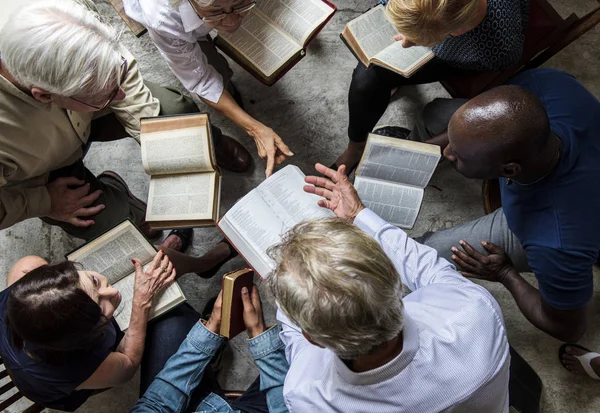
“Truth will make you strange.” Flannery O’Connor’s are particularly fitting words when it comes to the questions regarding Christianity that hardly find their way into polite debate. They are the ones murmured over a cup of coffee after study of the Bible or pondered in the stillness of a midnight prayer questions that brush against contradictions, cultural chasms, and the greatest mysteries of faith.
For most seekers and believers, these issues often feel touchy to discuss. But conversing about them openly usually brings greater understanding and a stronger spiritual life. Based on historical wisdom, theological insight, and real-life experience, here’s an honest examination of nine of the toughest questions Christians struggle with and what wise voices have to say about them.

1. Why So Many Denominations?
Christianity’s diversity did not occur overnight. The Protestant Reformation of the 16th century brought “sola scriptura,” the notion that Scripture alone should inform belief. This change fractured the church into separate traditions, each understanding the Bible through its own filter. Thousands of today’s denominations from Catholic to Baptist to Orthodox are a result of centuries of theological argumentation, cultural influence, and varying forms of governance.
As one contemporary handbook to Christian denominations observes, the Eastern Orthodox focus on tradition and liturgy, Roman Catholics on sacraments and papacy, and Protestants on the preeminence of Scripture. Though this diversity is perplexing, it also illustrates the way in which faith adjusts to new settings without sacrificing its essential dedication to Christ.

2. Why Does a Loving God Permit Suffering
The conflict between God’s love and man’s suffering is as old as the Book of Job. Presbyterian theologian Derek W.H. Thomas once sermonized that “God weaves, not only the fabric that produces joy and righteousness, but also that which produces agony and evil.” His implication God’s sovereignty governs all things, even those beyond our comprehension.
Philosophers refer to this as the “problem of evil,” making a distinction between natural evils such as disease and moral evils such as cruelty. Some Christians interpret suffering as a purifying fire, strengthening faith and pity. Others, such as Stanley Hauerwas, write from experience nursing a mentally ill wife taught him remembering the pain of the sufferer is as important as bearing one’s own. In this perspective, adversity is not evidence of God’s non-existence but a call to believe in the midst of mystery.

3. Do Non-Christians Always Go to Hell?
Catholic doctrine provides a qualified response those in “invincible ignorance” who through no fault of their own don’t know Christ may be saved. This is based on the belief that God’s mercy extends to honest seekers, even beyond formal church authority.
Vatican II reiterated that Jews, Muslims, and others who “search for God with a sincere heart” fall within God’s salvation plan. Early theologians such as St. Robert Bellarmine made a distinction between explicit and implicit desire for baptism and proposed that cooperating with God’s will even in unconsciousness can unite an individual to Christ’s redemption. The point? Last judgment is in God’s hands, whose love and justice are beyond human bounds.

4. Why Do Some Interpret the Bible Literally and Others Symbolically?
Strict literalism is not as old as it seems, contrary to what many people think. Scripture was interpreted in various “senses” throughout most of Christian history, with allegory dominating the process. Contemporary fundamentalist literalism, mostly American and Protestant, appeared during the 19th and 20th centuries.
Surveys indicate that although most believers continue to favor literal interpretations, others employ interpretive paradigms such as the Wesleyan Quadrilateral synthesizing Scripture with reason, tradition, and experience. This range offers both poetic symbolism and historical rootedness, demonstrating the diversity of centuries-long biblical engagement.

5. Why Are Same-Gender Relationships So Divisive in Churches?
Argument over sexuality tends to ride on the interpretation of certain passages. Authors such as William Loader note that Paul and other ancient authors were aware of mutual same-sex relationships but forbid them anyway. Contextual reinterpretation is advocated for by progressive theologians, who find space for affirmation within larger themes of love and justice throughout the Bible.
The gap has splintered denominations Methodists, Anglicans, and others have divided over the matter. For some, the struggle is weighing commitment to Scripture against understanding for LGBTQ+ people, a conflict unlikely to be resolved without extensive, respectful conversation.

6. Why Can’t Women Lead in Many Traditions?
Scriptural texts such as 1 Timothy 2:12 are used to limit women from teaching or exercising authority over men. But history paints a larger picture Miriam directed worship, Deborah judged Israel, and Phoebe and Junia were among the early church leaders who were women.
Context makes a difference Paul’s teachings could have been in response to certain interruptions or heresies in Ephesus. Contemporary egalitarian interpretations highlight that spiritual gifts are imparted without distinction based on gender. As an observant ministry leader noted, not engaging qualified women depletes the relational and emotional intelligence of the church, and joint leadership can better represent the body of Christ.

7. Has the Bible Changed Over Time?
Textual criticism the analysis of manuscript transmission demonstrates incredible uniformity in the Bible’s central message. Ancient manuscripts such as the Codex Sinaiticus enable scholars to match thousands of manuscripts and iron out minor differences.
Far from eroding faith, this process confirms it. According to one scholar, variation is inevitable in all ancient texts, but the New Testament has been remarkably well preserved. Contemporary interest in manuscripts, spurred by popular debates and even viral podcasts, has turned this once-esoteric discipline into an unlikely connection between scholarship and ordinary belief.

8. Is God Different in the Old and New Testaments?
The notion that the Old Testament God is vengeful and the New Testament God is loving ignores both the continuity of these traits throughout Scripture. God is “merciful and gracious, slow to anger” in Exodus, and Revelation shows Christ’s righteous judgment.
Theologians point out that the same God who condemned sin in the past sent Jesus as the greatest act of love. Narratives such as Jonah’s journey to Nineveh indicate divine mercy for outsiders, yet Acts documents God’s rapid judgment on deceitfulness. Love and justice aren’t two opposing things they’re sides of the same immutable character.

9. If God Forgives, Why Does Sin Still Have Consequences?
Forgiveness does away with eternal punishment but not necessarily earthly effect. David was not put to death after his adultery with Bathsheba, but suffered family strife and loss. Such effects, as pastors put it, are meant to humble and make holy rather than to condemn.
At the personal level, pre-faith habits such as addiction or sin such as drug addiction or destructive behavior can still have physical or relational repercussions. In this sense, consequences are part of God’s “forgiving toughness,” forming believers into maturity while confirming His grace.
These questions might never have neat, easy solutions, and that is all their strength. Struggling with them has the potential to deepen trust, expand empathy, and hone discernment. Ultimately, faith isn’t about dodging hard conversations it’s about facing them with courage, humility, and hope.


